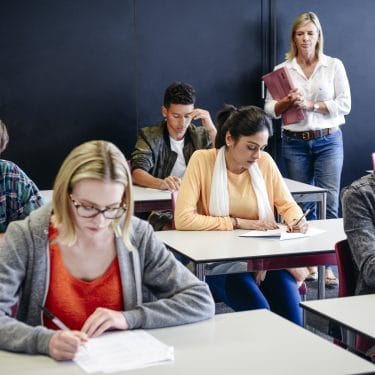
12/19
1 min read
We want all young people to have the knowledge and skills necessary to thrive in our society.
Over the past decade, we have played a leading role in ensuring that young people have sufficient opportunities to develop quantitative skills for further education, life and work.
Our work in post-16 maths education has included:
-
Revealing that England, Wales and Northern Ireland have lower participation rates in post-16 maths than comparable OECD countries and identifying some of the factors that drive participation. Our seminal report Is the UK an outlier? was described by the then Prime Minister David Cameron as ‘extremely worthwhile’ when it was raised at Prime Minister’s Questions.
-
Making the case for development of a new qualification that would be an attractive alternative for students who don’t go on to study A level maths. This recommendation was adopted by the government, which referenced our work in its initial policy statement on the new Core Maths qualification.
-
Convening a series of events to engage policy makers, awarding bodies, the higher education sector, employers and schools with the evidence on maths education. This included working with Sir Adrian Smith, whose review of post-16 mathematics referenced our work and influenced the government’s commitment to invest an additional £406 million in maths, digital and technical education.
-
Establishing Q-Step, a programme to provide a step-change in quantitative social science training for undergraduates. Eighteen universities across the UK are now offering specialist degree programmes, modules and pathways to postgraduate study.
We welcome these developments, although we believe there is more we can do to support increased participation in post-16 maths education. We are now funding further projects that will assess the early progress of Core Maths and identify ways to improve the quality of mathematics education in Further Education colleges.
Core Maths plugs a critical gap for students who are progressing to higher education and into higher technical study”Sir Adrian Smith
Download our post-16 mathematics report, based on a presentation given by Josh Hillman, in March 2014 at the first Q-Step conference.
Core Maths is the most significant development in post-16 mathematics in a generation.”Professor Paul Glaister, Chair of the Joint Mathematical Council (JMC)



















































